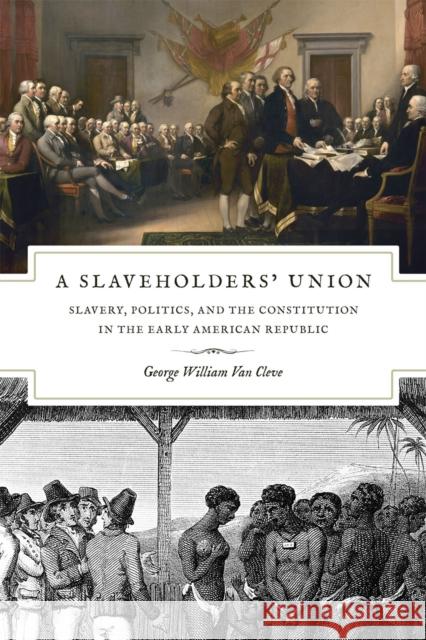A Slaveholders' Union: Slavery, Politics, and the Constitution in the Early American Republic » książka
A Slaveholders' Union: Slavery, Politics, and the Constitution in the Early American Republic
ISBN-13: 9780226846705 / Angielski / Miękka / 2011 / 408 str.
After its early introduction into the English colonies in North America, slavery in the United States lasted as a legal institution until the passage of the Thirteenth Amendment to the Constitution in 1865. But increasingly during the contested politics of the early republic, abolitionists cried out that the Constitution itself was a slaveowners' document, produced to protect and further their rights. A Slaveholders' Union furthers this unsettling claim by demonstrating once and for all that slavery was indeed an essential part of the foundation of the nascent republic.In this powerful book, George William Van Cleve demonstrates that the Constitution was pro-slavery in its politics, its economics, and its law. He convincingly shows that the Constitutional provisions protecting slavery were much more than mere "political" compromises--they were integral to the principles of the new nation. By the late 1780s, a majority of Americans wanted to create a strong federal republic that would be capable of expanding into a continental empire. In order for America to become an empire on such a scale, Van Cleve argues, the Southern states had to be willing partners in the endeavor, and the cost of their allegiance was the deliberate long-term protection of slavery by America's leaders through the nation's early expansion. Reconsidering the role played by the gradual abolition of slavery in the North, Van Cleve also shows that abolition there was much less progressive in its origins--and had much less influence on slavery's expansion--than previously thought.Deftly interweaving historical and political analyses, A Slaveholders' Union will likely become the definitive explanation of slavery's persistence and growth--and of its influence on American constitutional development--from the Revolutionary War through the Missouri Compromise of 1821.











